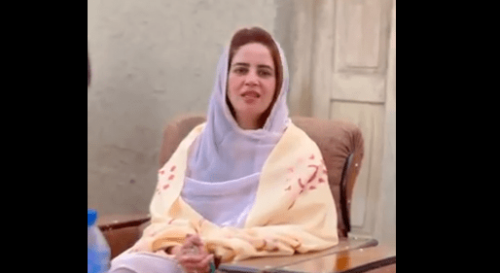LAHORE: The Establishment Division (ED), Islamabad, finally enforced the new Rotation Policy 2018 for officials of the Pakistan Administrative Service/Police Service of Pakistan across the country after certain amendments.
The policy says the police officers who worked for consecutive 10 years in a province or the federal government will not be allowed to continue to work there.
They shall be either transferred to the federal government or the other provinces after the certain period decided in the new rotation policy.
Earlier, the ED had proposed transfer of the police officers to the federal government or other provinces after serving for five years consecutively in a province or in the Centre.
The establishment division has notified the policy accordingly after setting yardstick of 10-year service after the PSP cadre mounted pressure on the federal authorities that the five-year period would lead to a ‘brain drain and human resource crisis’ in the provinces in top grades.
Policemen with 10-year consecutive service in a province will be transferred
The notification issued by the ED reads, “The PAS/PSP officers of BS-21 and below who have served in any provincial or federal government for a continuous period of not less than 10 years may be transferred to the federal government or other provinces, as the case may be, in the public interest.
“The period spent on EOL/earned leave/study leave/ OSD/training/deputation/foreign posting shall be excluded for the purpose of computing continuous period of 10 years and will not be treated as break.”
A copy of the notified policy is also available with Dawn.
The ED has accordingly intimated to the provincial governments the newly enforced amended Rotation Policy 2018 besides other relevant authorities.
An official who is well-versed with the changes in the policy told Dawn that the recently-announced changes in inter-provincial transfer policy for the PSPs were misconceived and smacked of political motivation.
He said the earlier policy was based on the rotation of officers to other provinces at the start of their career.
This policy has been changed all of a sudden in midstream without a cogent reason, he said adding that since the knowledge of the people, customs, behaviours, languages spoken in the area and information flows are vital for effective policing, it would not yield positive results.
He said displacing the experienced police officers in new units where they had already served for two years or so is beyond understanding.
Presently, the official said, there is hardly any PSP officer who has not undergone mandatory initial provincial rotation.
“Such a sudden and uncalled for change calls into question the motives for this policy,” he said adding that the earlier [policy] envisaged officers serving in other units at the start of their career and then serving in the unit of their choice which was mostly their own province of domicile.
Apparently, the reason given behind this new move is de-politicisation. However, he said, the real motive appears to be changing the provinces of officers who have served with the previous governments in Sindh and Punjab.
It appears that the basis for this is the possible service of officers in Punjab and Sindh and will affect the officers with sound background, experience and spotless career, mostly from these two provinces.
The official further said that the policy would also negate the concept of granting autonomy to the police as had been portrayed recently.
“What would happen to the autonomy and de-politicisation of the police when the heads of the police would not be allowed to make appointments of their choice from the available lot,”? he said.
He said a much better approach would be to leave the task of formation of team to the respective inspector generals of police (IGPs) who can decide whom they want to keep and whom to send to some other unit.
The IGPs should be empowered to select their own teams from the entire list of officers on the basis of their reputation, integrity and professionalism, he said.
Published in Dawn, September 27th, 2018














































